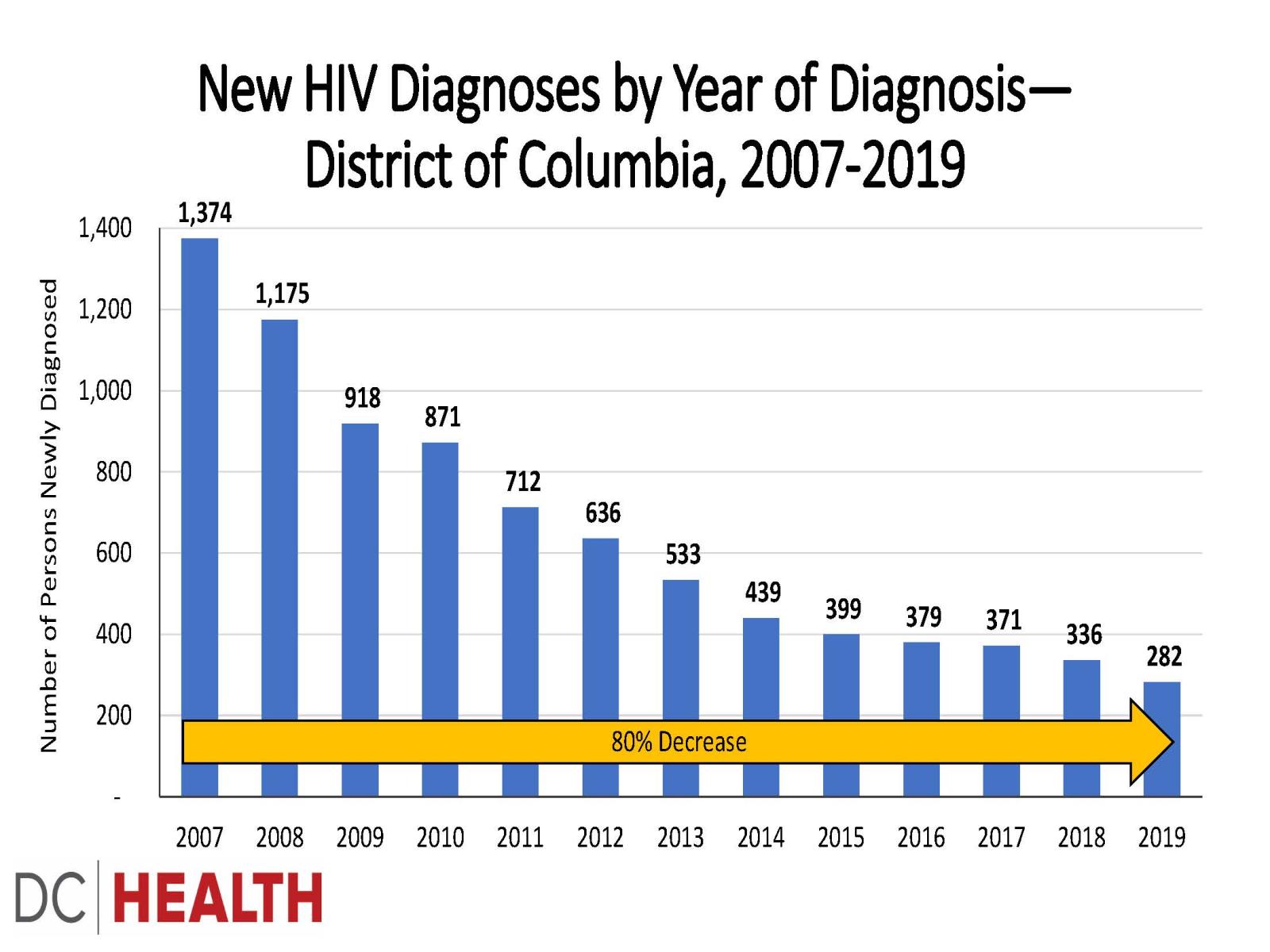HIV in Washington DC
In 2007, Washington, DC was confronting a severe HIV epidemic. In a relatively small city of about 500,000 adult residents, there were 1,311 newly reported HIV cases and 3.0% of adults and 6.3% of black men were living with HIV. The public health response to the epidemic in the nation’s capital was sharply criticized by the community and media, and the academic HIV research community was small and disjointed.
The DC CFAR was founded in 2010 to galvanize and lead the academic response, with a wide array of implementation, evaluation and scientific research activities which together contributed to a dramatic 79% reduction in newly diagnosed HIV cases in DC from 2007 to 2019.
According to the DC Department of Health HIV/AIDS, Hepatitis, STD, and TB Administration (HAHSTA) 2020 Annual HIV/AIDS Epidemiology and Surveillance Report:
- Currently,12,408 DC residents or 1.8% of the population, are living with HIV
- There were 282 newly diagnosed HIV cases in 2019 representing a 61% decrease from 2011
- There were two children born with HIV in 2019
- More than half of the people living with HIV in the District are older than 50
- The number of new HIV diagnoses due to injection drug use decreased by 99% from 2007
The report underscores steady progress on achieving the District's 90/90/90/50 Plan and describes DC Health's plans to update these goals to support efforts to End the HIV Epidemic in DC.
For more information visit the DC Health website.
Contributions of the DC CFAR to the Epidemic Response
DC CFAR investigators have contributed to the local response to the epidemic in a myriad of ways – providing technical support to DC Health, providing HIV care and treatment to thousands of People Living with HIV (PLWH) at academic and community clinics, conducting research on key populations and interventions through pilot and supplemental awards and leading large NIH-funded research studies in DC.
Data Source: Annual Epidemiology & Surveillance Report Slides: Data Through December 2019. District of Columbia Department of Health, HIV/AIDS, Hepatitis, STD, & TB Administration 2020.



